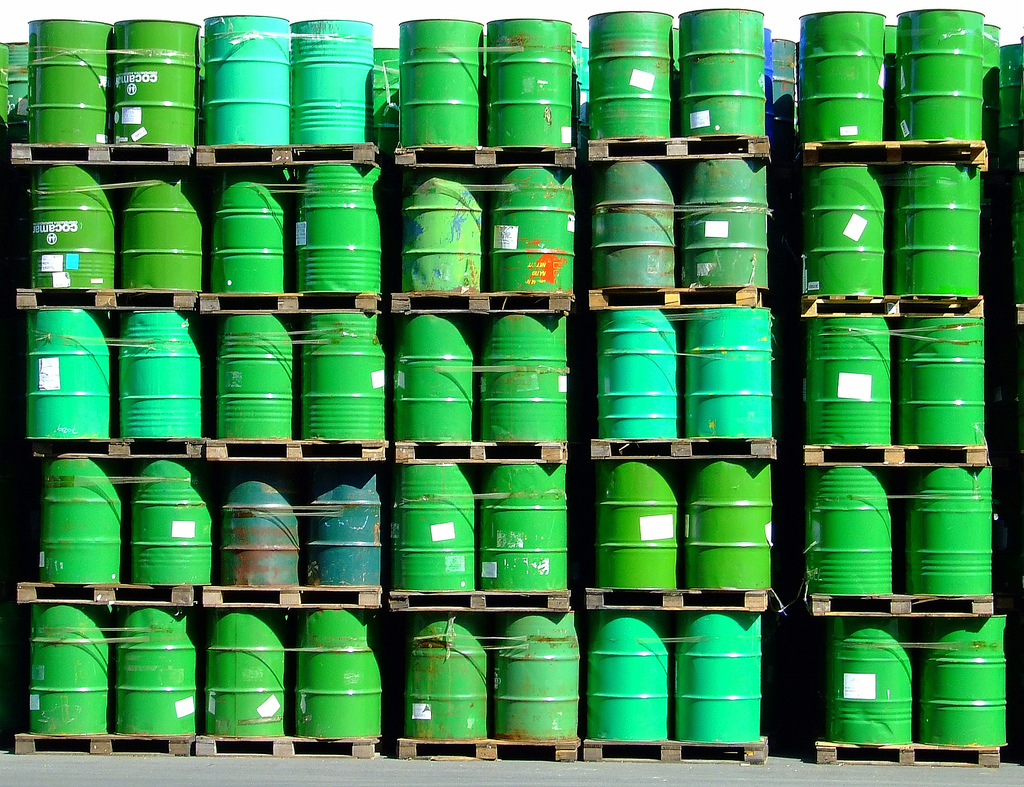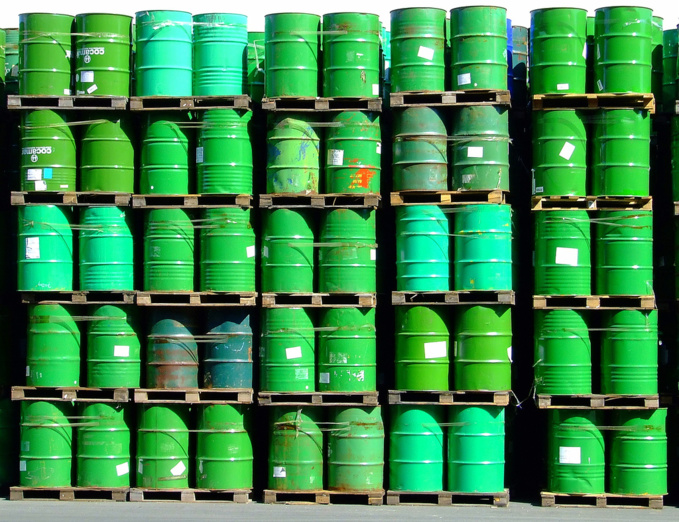1. Cost of drilling and development of wells will grow
The next year will bring a trend that will have a strong impact on US companies, both large and small. Since the beginning of 2017, the cost of drilling and completion of wells has increased, and productivity growth has fallen. Productivity falls, as companies expand their work area, moving to less productive areas.
Experts expect that drilling programs will be expanded, while the level of productivity will fall, as companies will have to drill in less productive areas. To compensate for the low productivity, the business will be forced to increase the total amount of work, attracting more drilling rigs and drilling more wells. This will increase the cost of services for oilfield services companies.
After the oil prices sunk in 2014, oilfield service companies were ready to review contracts and pricing. Now that prices are gradually recovering, it is logical to expect that the laws of supply and demand will enter into play, and service companies will begin to increase the level of profit. In addition, many service companies are beginning to call back to previously laid-off employees to support the current level of work. After part of the workforce was dismissed or temporarily left without work, they moved to a more stable industry. Therefore, now it is necessary to raise salaries once again to force a sufficient number of qualified employees to return to the industry.
Thus, experts believe that service companies will raise their rates, as well as will review contracts and pricing upward.
2. The difference between WTI and Brent will be the same
Experts at Stratas Advisors expect that Brent crude will continue to outstrip WTI at least in the first half of next year. Prices for Brent will be supported by the OPEC agreement. And a big difference in prices will have a positive effect on the export of American oil.
At the same time, analysts believe that such a difference in prices will not last forever, so companies that benefit from this state of affairs will have only a temporary advantage. A number of companies will benefit from this difference, sending their oil for export and opening up new markets for themselves. At the same time, analysts expect that oil refineries will rely on diversifying sources both within the country and abroad.
3. Geopolitical risks will play an important role in pricing
Experts expect that the market will react more sharply to supply disruptions, regardless of whether they depend on weather disasters or geopolitical problems.
Experts believe that Europe's refineries next year will face the greatest number of risks.
It is difficult to predict some phenomena, but fires in Canada, hurricanes in the Gulf of Mexico, tornadoes and other weather disasters always pose a threat to oil production. Low temperatures and cold winters also represent a risk for demand in the US and abroad.
In addition to natural disasters there are still geopolitical risks. Analysts identify five geopolitical "hot spots" in the next year: Venezuela, Iran, Iraq, Libya and Nigeria. The political situation in Venezuela has had an impact, since exports from this country have significantly decreased. And the collapse of exports will lead to serious consequences for the refineries of the US and China.
The effect will be relatively small in the US, as oil refineries are gradually reducing supplies from Venezuela, which is related to the quality of oil and payment problems.
Speaking of China, the impact will be more significant, as Chinese companies will not receive the volumes of oil promised to them under the oil-for-credit scheme.
Chinese companies will have to look for other sources of supply, which could lead to higher oil prices. If we talk about Iran, there is a risk that the volumes of supplies will decrease because of sanctions, which will primarily affect European companies.
4. The difference between heavy and light oil will decrease.
According to analysts of Stratas Advisors, the OPEC agreement will be valid at least until the end of next year. However, the difference between heavy and light oil will be reduced, which will also contribute to supply interruptions. The difference in price between light and heavy oil has especially declined precisely this year, after the OPEC agreement came into force.
source: cnn.com
The next year will bring a trend that will have a strong impact on US companies, both large and small. Since the beginning of 2017, the cost of drilling and completion of wells has increased, and productivity growth has fallen. Productivity falls, as companies expand their work area, moving to less productive areas.
Experts expect that drilling programs will be expanded, while the level of productivity will fall, as companies will have to drill in less productive areas. To compensate for the low productivity, the business will be forced to increase the total amount of work, attracting more drilling rigs and drilling more wells. This will increase the cost of services for oilfield services companies.
After the oil prices sunk in 2014, oilfield service companies were ready to review contracts and pricing. Now that prices are gradually recovering, it is logical to expect that the laws of supply and demand will enter into play, and service companies will begin to increase the level of profit. In addition, many service companies are beginning to call back to previously laid-off employees to support the current level of work. After part of the workforce was dismissed or temporarily left without work, they moved to a more stable industry. Therefore, now it is necessary to raise salaries once again to force a sufficient number of qualified employees to return to the industry.
Thus, experts believe that service companies will raise their rates, as well as will review contracts and pricing upward.
2. The difference between WTI and Brent will be the same
Experts at Stratas Advisors expect that Brent crude will continue to outstrip WTI at least in the first half of next year. Prices for Brent will be supported by the OPEC agreement. And a big difference in prices will have a positive effect on the export of American oil.
At the same time, analysts believe that such a difference in prices will not last forever, so companies that benefit from this state of affairs will have only a temporary advantage. A number of companies will benefit from this difference, sending their oil for export and opening up new markets for themselves. At the same time, analysts expect that oil refineries will rely on diversifying sources both within the country and abroad.
3. Geopolitical risks will play an important role in pricing
Experts expect that the market will react more sharply to supply disruptions, regardless of whether they depend on weather disasters or geopolitical problems.
Experts believe that Europe's refineries next year will face the greatest number of risks.
It is difficult to predict some phenomena, but fires in Canada, hurricanes in the Gulf of Mexico, tornadoes and other weather disasters always pose a threat to oil production. Low temperatures and cold winters also represent a risk for demand in the US and abroad.
In addition to natural disasters there are still geopolitical risks. Analysts identify five geopolitical "hot spots" in the next year: Venezuela, Iran, Iraq, Libya and Nigeria. The political situation in Venezuela has had an impact, since exports from this country have significantly decreased. And the collapse of exports will lead to serious consequences for the refineries of the US and China.
The effect will be relatively small in the US, as oil refineries are gradually reducing supplies from Venezuela, which is related to the quality of oil and payment problems.
Speaking of China, the impact will be more significant, as Chinese companies will not receive the volumes of oil promised to them under the oil-for-credit scheme.
Chinese companies will have to look for other sources of supply, which could lead to higher oil prices. If we talk about Iran, there is a risk that the volumes of supplies will decrease because of sanctions, which will primarily affect European companies.
4. The difference between heavy and light oil will decrease.
According to analysts of Stratas Advisors, the OPEC agreement will be valid at least until the end of next year. However, the difference between heavy and light oil will be reduced, which will also contribute to supply interruptions. The difference in price between light and heavy oil has especially declined precisely this year, after the OPEC agreement came into force.
source: cnn.com



















